Sometimes the typical strategies to support your mental health just don’t land. You’ve tried mindfulness. You’ve tried therapy. Still, your days slip sideways, your emotions rattle around your ribs, and everything either feels like too much or absolutely nothing. If you’re living with Borderline Personality Disorder (BPD), you already know this: Your needs aren’t general. You need tools that stabilize and surprise, comfort and disrupt. Not more theory, real things you can touch, do, try. Let’s skip the fluff. These aren’t blanket “mental health hacks.” They’re human things that pull focus, reset nervous systems, and offer moment-by-moment traction in a slippery world.
Language as Mental Cross-Training
There’s a wild kind of quiet that comes from trying to say something in another language. No baggage. No self-story. Just learning how to name the sky or ask for bread. When your thoughts spiral or loop, you can reframe your focus by learning another language, redirecting all that brain noise into something new and rhythmic. The shift isn’t just cognitive, it’s emotional. A few minutes a day on a language app or scribbling phrases in a notebook can become a ritual of small mastery. And for someone with BPD, even micro-wins stack into momentum. It’s not about fluency. It’s about unfamiliar syllables pulling you into the now.
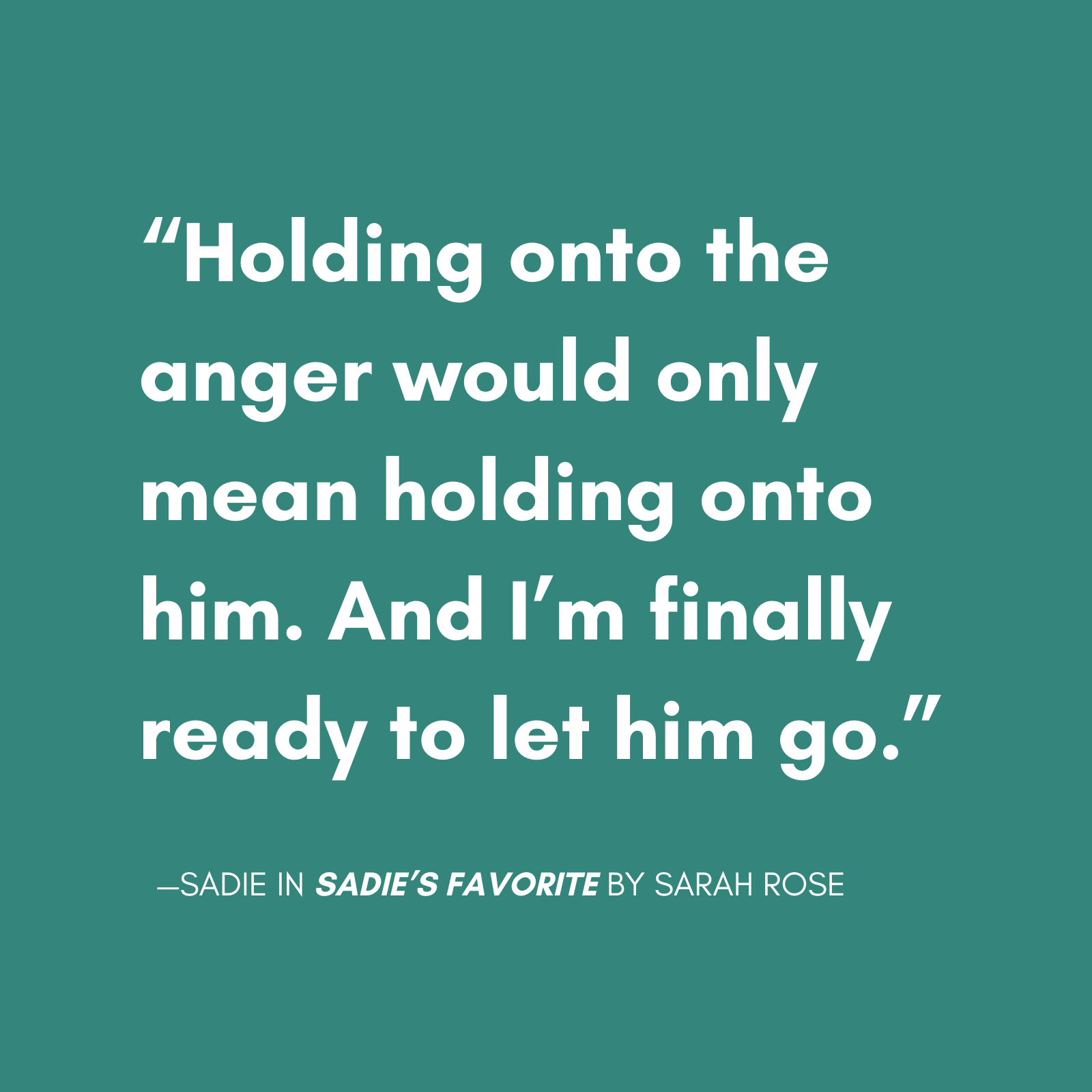
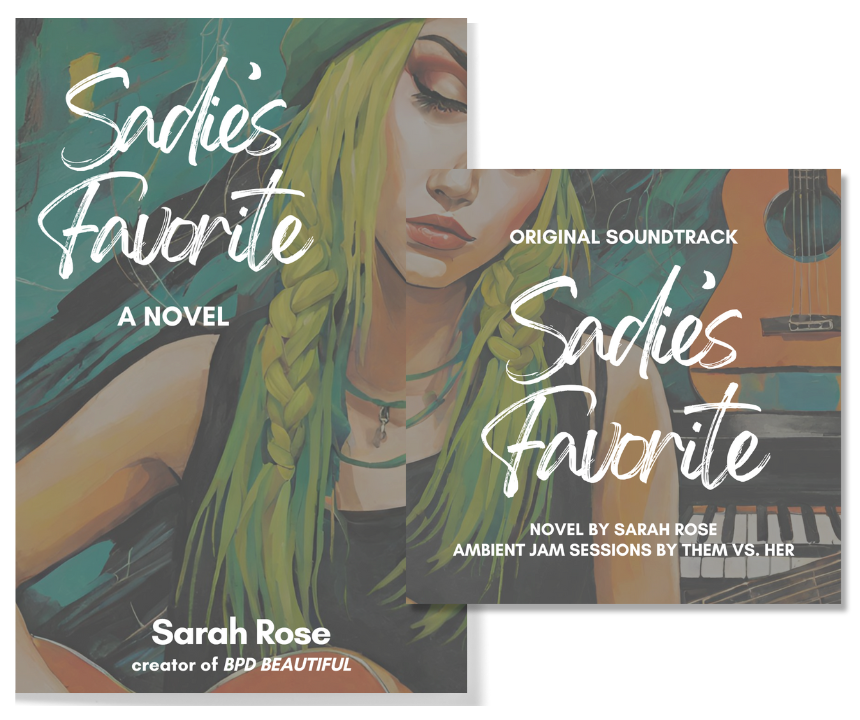
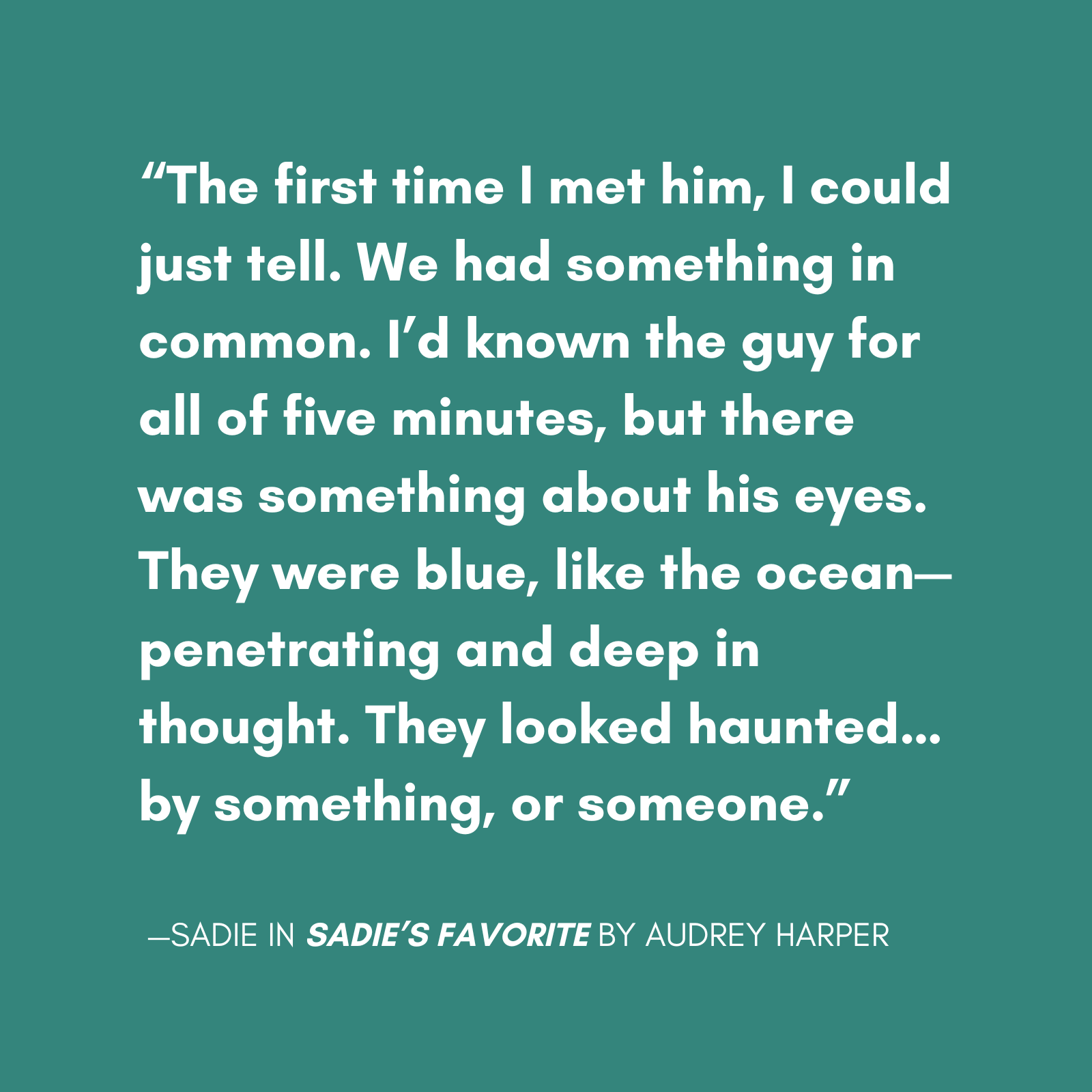
Sadie’s Favorite: A Novel + Original Soundtrack is a character-driven story about BPD recovery, trauma bonds and breaking away from abuse.
Rhythm and Repetition for Self-Regulation
Playing music isn’t about performance, it’s about precision and pattern. If you pick up an instrument to support your mental health, even just tapping a hand drum or plucking a ukulele, you might start to feel grounded, not because you’re good at it, but because your body suddenly has somewhere to be. Music organizes emotion without demanding you talk about it. The physicality of sound gives structure to a scattered nervous system. This isn’t therapy. It’s vibration. It’s rhythm. And rhythm doesn’t ask you who you are or why you’re feeling anything. It just keeps going, and you can go with it.
Companionship With Unconditional Love
You ever look at a dog’s face and just… exhale? They don’t need you to explain. They don’t correct your mood or ask you to smile. When everything’s cracked open or bubbling too hot, your pet’s presence can help you reset. Even just brushing their fur or watching them sleep can re-regulate your breath. Their needs are simple: food, water, walk, touch. Those needs become scaffolding when your own feel too slippery. And no, it doesn’t have to be a dog. A cat. A gecko. A rabbit. Something alive that’s not asking questions, just existing near you, rhythmically, calmly, now.
Vocal Community as Mood Catalyst
Let your voice be heard. Loud. With other people. Singing, especially in groups, isn’t about skill. It’s about coherence. You don’t have to explain what hurts when you’re in sync with someone else’s voice. You just sing the same note. You can lift your mood through shared singing, even if it’s a messy, off-key harmony in a tiny room. The blend of your breath with others shifts your chemistry. Serotonin spikes. Tension drops. Belonging shows up uninvited. And for people with BPD, where isolation and identity can slide sideways, this kind of group sound cuts through the static without needing a story.
Writing as a Mirror, Not a Fix
You don’t need to journal the “right” way. You don’t need prompts. You just need a moment of stillness where you can see yourself reflected—not in a tidy narrative, but in raw, disorganized truth. You can clarify what’s swirling inside by grabbing a pen and letting it rip. Scribbles. Rants. A single word written 17 times. What matters is that it’s out. The act of writing turns inner chaos into something with edges. Something visible. Something slightly less unmanageable. This isn’t a diary entry. It’s proof of your mind existing outside your body for a second. That’s power.

As a BetterHelp affiliate, we receive compensation from BetterHelp if you purchase products or services through the links provided.
Tiny Wins as Emotional Interruptors
Not every strategy has to be deep to support your mental health. Sometimes it’s a sip of something cold, a streak of light through the blinds, the exact right song at the exact wrong moment. You can catch a tiny moment worth savoring, and that micro-second might reroute your whole day. These aren’t gratitude exercises. They’re pulses. Interruptions. Reminders that joy can be accidental and low-effort and not ask anything from you. BPD often twists perception to the extremes. These moments soften the edge, not by changing your mind, but by giving it something else to notice. One second. That’s all it takes.
Career Moves That Support Stability
Want to surprise your nervous system in a good way? Give it a reason to look forward. Take a look here: Going back to school might sound heavy, but aligning your learning with a dream career can give shape to otherwise shapeless days. You create a routine. You build a future. You feel useful. You also get to pursue flexible online degree programs, which means you can learn at your own pace, from wherever you are, without the pressure of showing up perfectly. For people with BPD, this kind of autonomy paired with structure isn’t just helpful, it’s sanity-saving. It puts you in motion toward something real.
You don’t need to overhaul your life to support your mental health. You don’t need perfect habits. You need options. Small ones. Repeatable ones. Ones that feel like you can fail at them without falling apart. These seven actions don’t promise healing, but they create space, space between you and the chaos, space between reaction and choice. If one works today and another doesn’t, fine. If you try all and stick to none, fine. You still tried. And that matters. Keep choosing something. Keep choosing you.
Find authentic and practical content at BPD Beautiful, where warriors, survivors, and advocates unite to support your journey with BPD.
Discover empowering resources and authentic recovery stories at BPD Beautiful, offering practical tools and a compassionate community.
BPD Resources
BPD in Fiction: Sadie’s Favorite is a Novel + Original Soundtrack, that touches on BPD, favorite person (FP) relationships, healing after abuse, parenting and more. Written by Sarah Rose, creator of BPD Beautiful. Soundtrack performed by Them vs. Her.
Get 20% off your first month of BetterHelp. Get matched with a licensed therapist within 48 hours. Subscriptions as low as $65/week, billed every 4 weeks. Cancel anytime.
Manage your BPD symptoms with a printable workbook.
See our recommended list of books about BPD.
Start a Discussion
Have you tried incorporating these tips to help you in managing the intense emotions that come from having BPD &/or anxiety? Tell us about it in the comments.
Pin this Post
Liked this post? Please help support BPD Beautiful and spread borderline personality disorder awareness by pinning it to Pinterest.
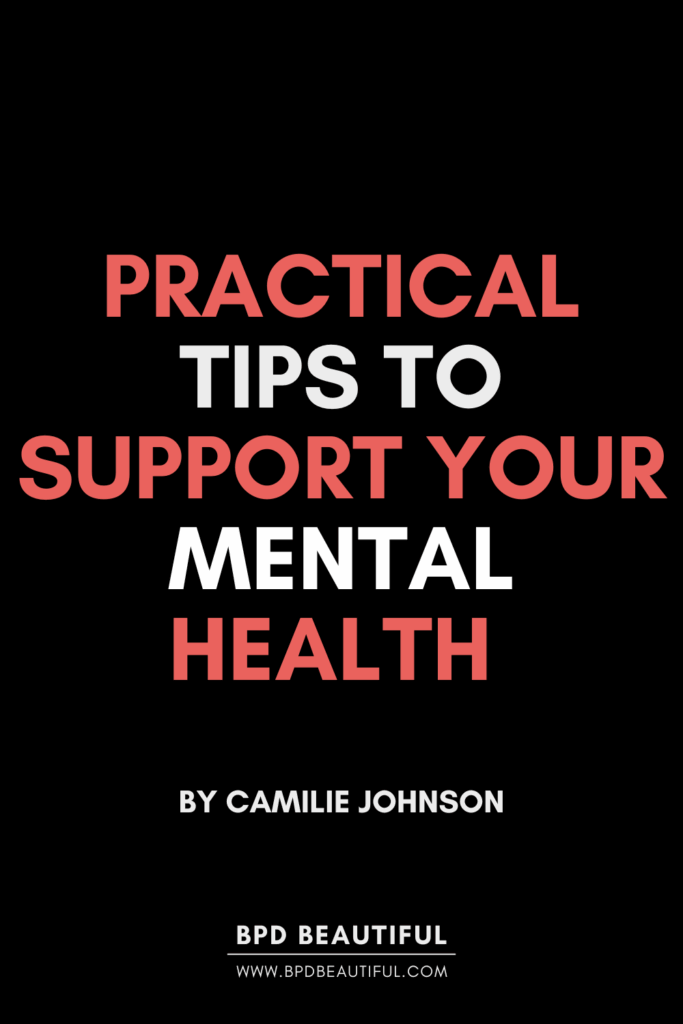


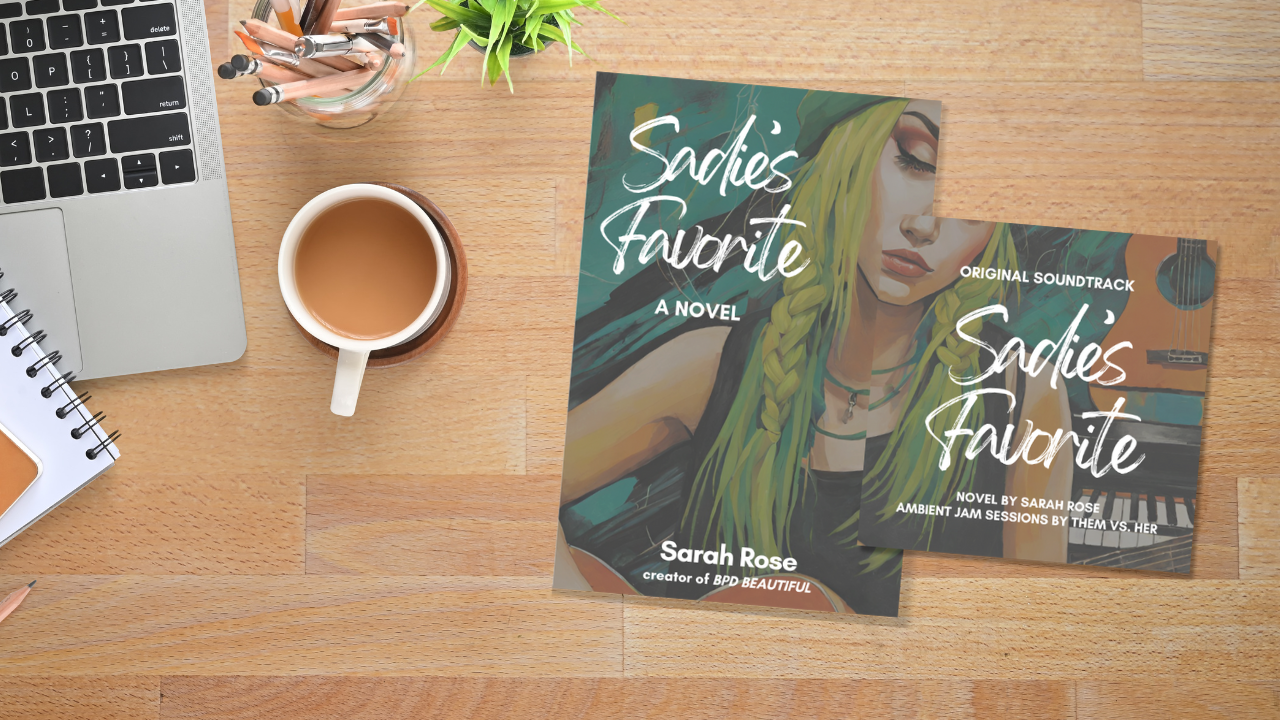

Leave a Reply
You must be logged in to post a comment.